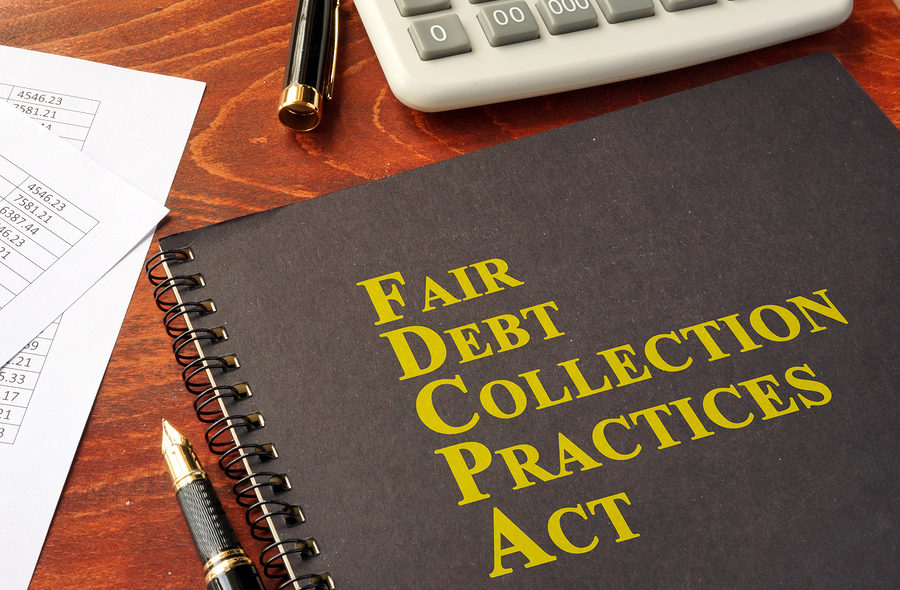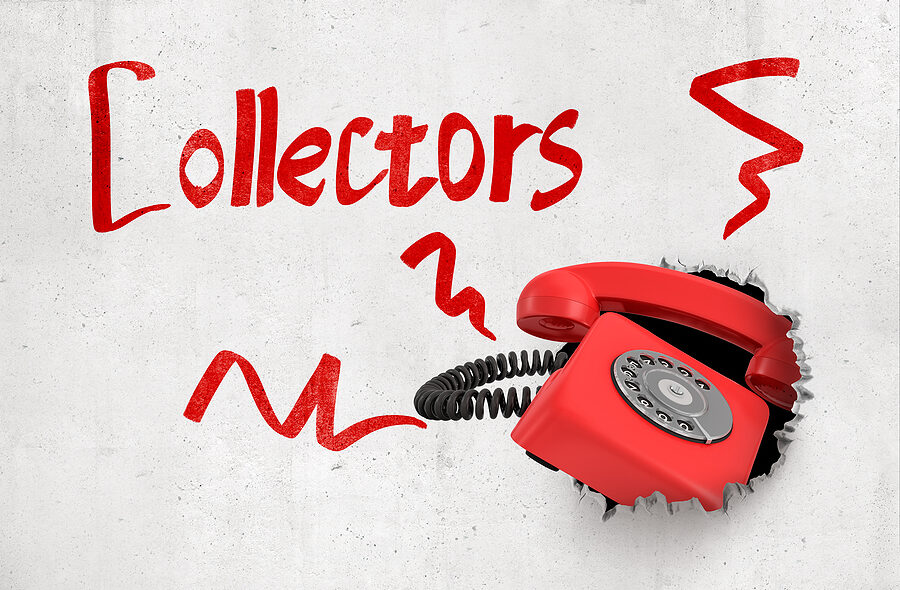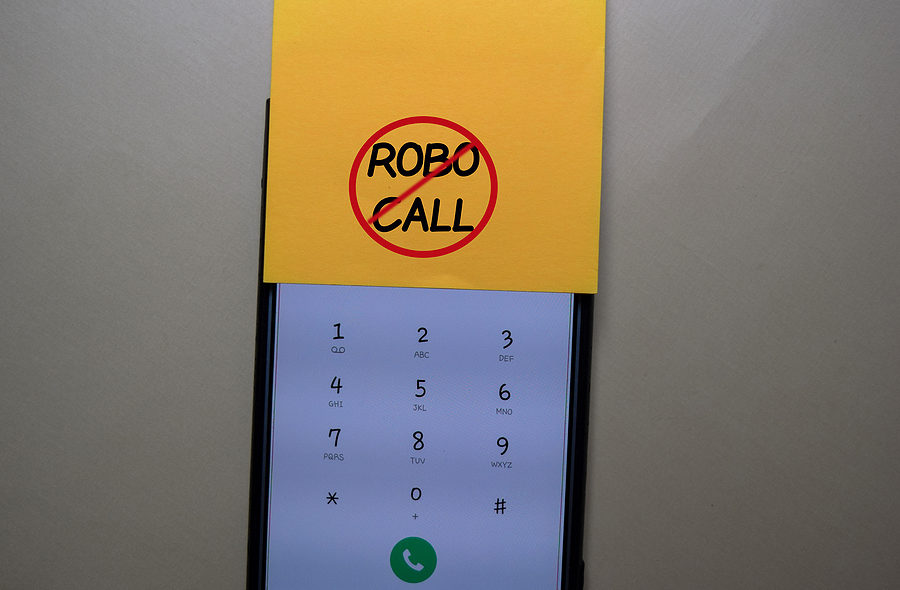Working with a debt collector is normally not a pleasant experience. Debt collectors are persistent when trying to reach a debtor, and many will stop at nothing until they are successful at getting payment. Any time someone is late on or has missed a payment, that person should expect some type of communication from a collector, whether it be in written form or through phone calls. Many times, it is a combination of both. It helps to know your rights when dealing with a debt collector and know how to work with them on negotiating your debt.
Get Verification of the Amount Owed
Never assume that the information the debt collector is providing is completely accurate. Believe it or not, many scams are out there where debt collectors attempt to collect on debt that belongs to another person or is entirely past the statute of limitations. As soon as the debt collector makes contact, ask them to provide written verification of the amount owed.
Also, verify the credibility of the debt collector. Ask for the person’s name, the name of the company, a business address and a phone number. It pays to do some research into the company to see if they are, in fact, a legitimate debt collector. Also, review the amount they say is owed against your own records to ensure that the amount is accurate. Collection agencies are bound by law to send a validation letter within five days of contacting a debtor, listing the debt amount, the original creditor, and what the debtor should do in the event an error is discovered. It could be possible that a debtor owes on a specific debt but in a smaller amount than the collector is arguing they owe. Always verify before making payment.
Debtor Rights
One big mistake many debtors make is assuming that they have no rights when speaking with a debt collector, which is very far from the truth. Because many times, a debt collector’s actions will border on the edge of harassment or threats, the Fair Debt Collection Practices Act, or FDCPA, was enacted, which prohibits a debt collector from deceiving, threatening or harassing a debtor while collecting on a debt. The FDCPA prohibits any type of communication that threatens the debtor, includes profane language, or makes the debtor feel harassed. The collector can also not lie to the debtor, threaten to arrest or deport him or her, or threaten to take the person to court without any intention of doing so. A debt collector is also prohibited in the times that he or she can contact a debtor. Calls cannot be made before 8 a.m. or after 9 p.m. If a debt collector is violating the FDCPA, inform them of the violation and demand that no more communication be made. The collector can be reported to the Consumer Financial Protection Bureau, as well as the Better Business Bureau and the Florida Attorney General.
Look at the Type of Debt
It also helps to know what type of debt is involved when dealing with a collector. Many times, different options exist for payment plans based on the type of debt, whether it be credit card, medical debt, or something secured with collateral, like a car or home. Medical debt creditors tend to be more willing to work out a payment plan than credit card creditors. Also, if the debt involved is a medical debt, double check to make sure that the debt was processed by insurance first. Student loan service providers may also be more likely to work with a debtor on an income-based repayment plan or even may offer a deferment option to allow the debtor to get back on his or her feet first before continuing payment.
Some collectors will work with a debtor on a lump sum payment that is lower than the amount owed in exchange for releasing the debt. Ask if that is a possibility on the balance, and if it is, see if the collector will settle for a partial repayment over receiving nothing.
Be Aware of the Statute of Limitations
As mentioned previously, debt collectors will also try to get a person to pay on a debt that is past the state’s statute of limitations. It is highly possible that a phone call from a debt collector is on a debt that is past the time frame in which they have a legal right to pursue payment. The statute of limitations for Florida is five years for written contracts and four years for oral contracts or revolving accounts, such as credit cards.
Use the “Bankruptcy” Word
Sometimes it does benefit the debtor to mention that he or she is considering filing for bankruptcy. The collector wants to receive payment, and if the debt is something that is unsecured, such as a credit card or medical debt, it could easily be discharged through bankruptcy. If this happens, the creditor will end up receiving nothing. Tell the collector that bankruptcy is being considered not as a threat necessarily but more as a push to motivate them to negotiate. However, only do this if repayment in any form is an actual possibility. Otherwise you could be making empty threats.
Always Get It in Writing
When dealing with debt collectors, any time someone works out an agreement with the collector, it is imperative that he or she memorialize the agreement in writing. This rule of thumb applies for whatever type of agreement is reached, whether it be a debt repayment plan, a change in payment terms, or a lower interest rate. Request that the agreement be sent via mail, and always review the terms very carefully before signing on the dotted line. Make sure nothing has changed from what was originally discussed. Many times, a debt collector may add some additional language that was not agreed upon, and once the contract is signed, the debtor is bound by that agreement. Always review before signing.
Click here to read more on this story.
If you have questions on this topic or are in financial crisis and considering filing for bankruptcy, contact an experienced Miami bankruptcy attorney who can advise you of all of your options. As an experienced CPA as well as a proven bankruptcy lawyer, Timothy Kingcade knows how to help clients take full advantage of the bankruptcy laws to protect their assets and get successful results. Since 1996 Kingcade Garcia McMaken has been helping people from all walks of life build a better tomorrow. Our attorneys’ help thousands of people every year take advantage of their rights under bankruptcy protection to restart, rebuild and recover. The day you hire our firm, we will contact your creditors to stop the harassment. You can also find useful consumer information on the Kingcade Garcia McMaken website at www.miamibankruptcy.com.






